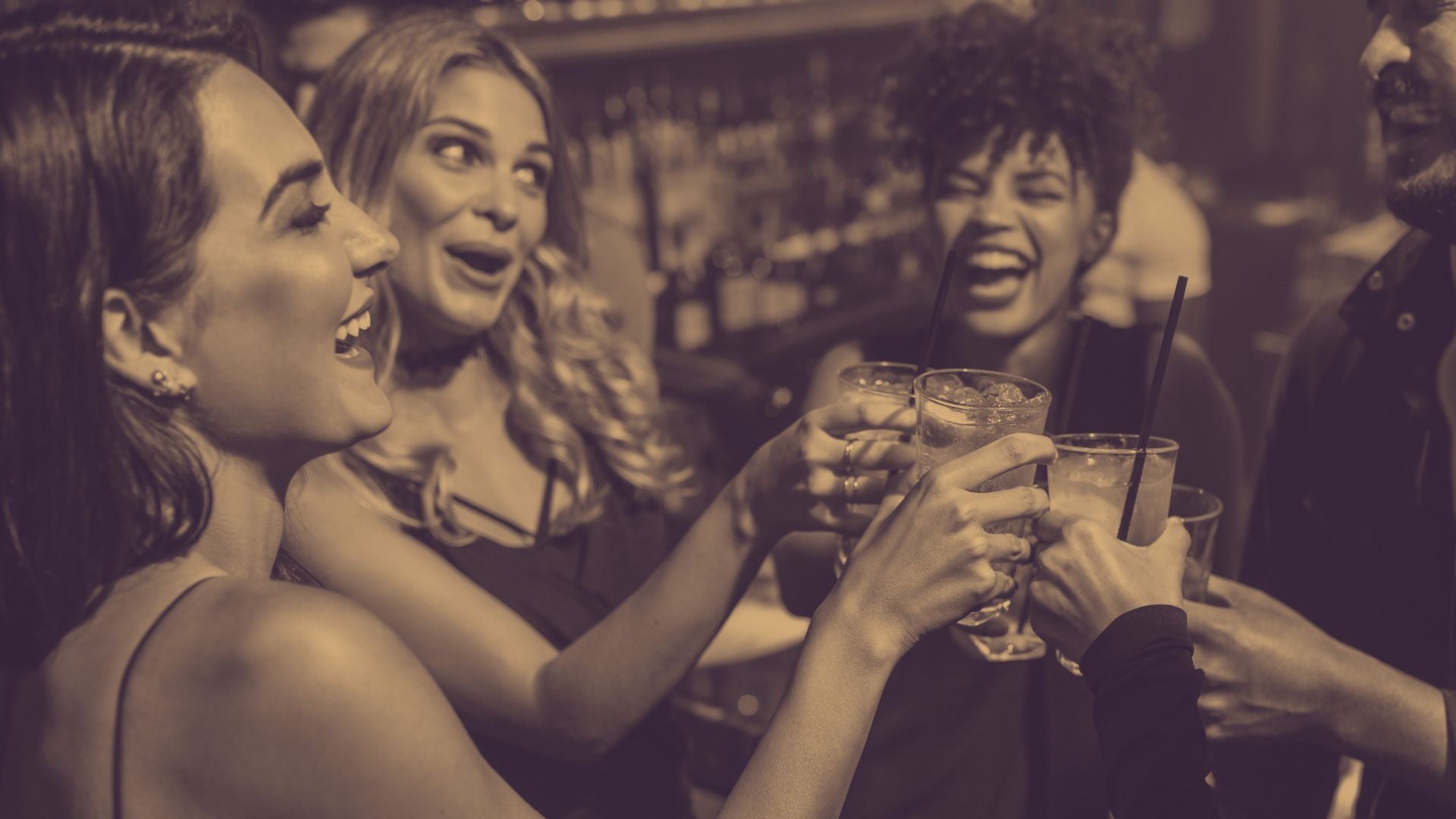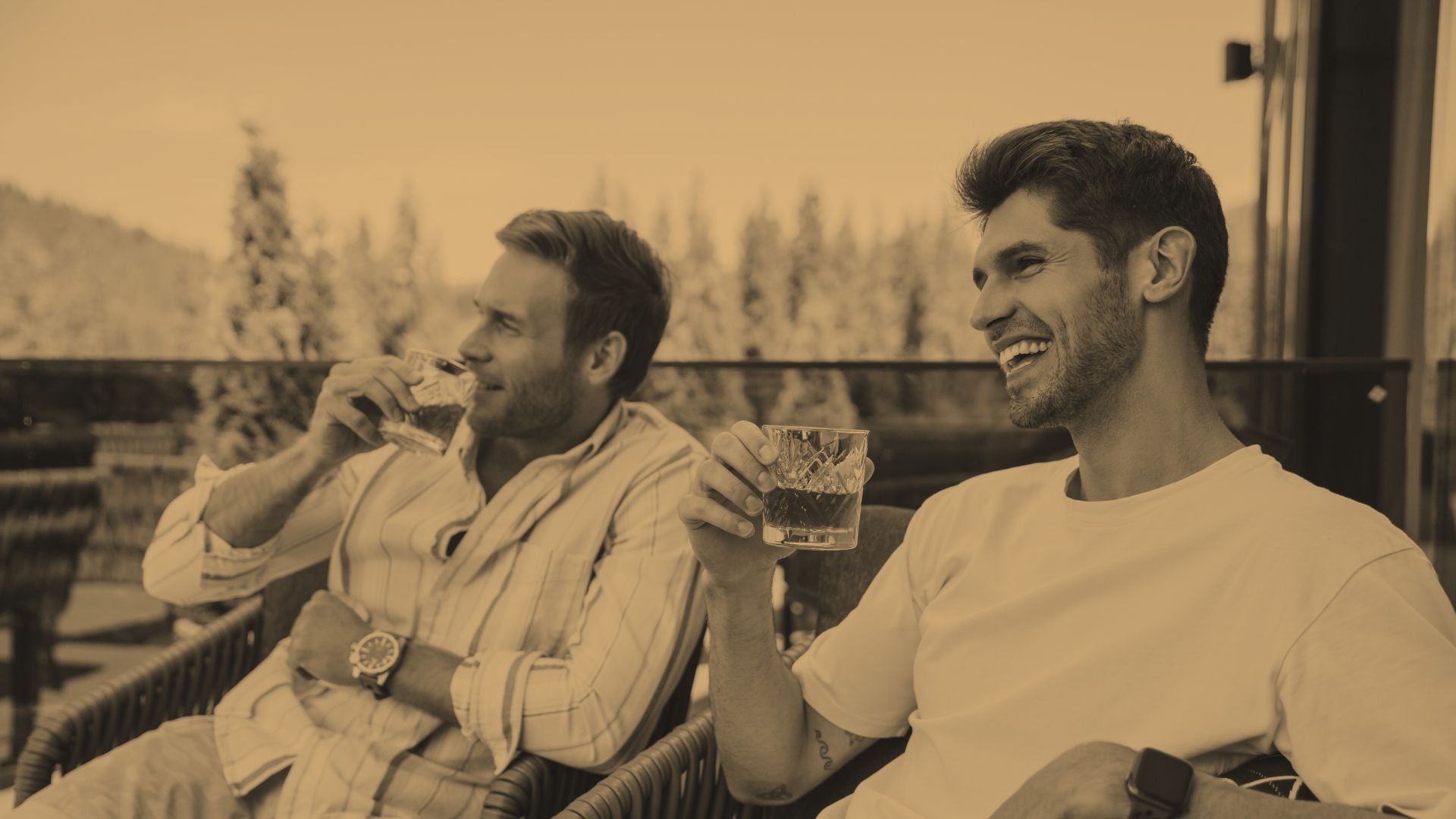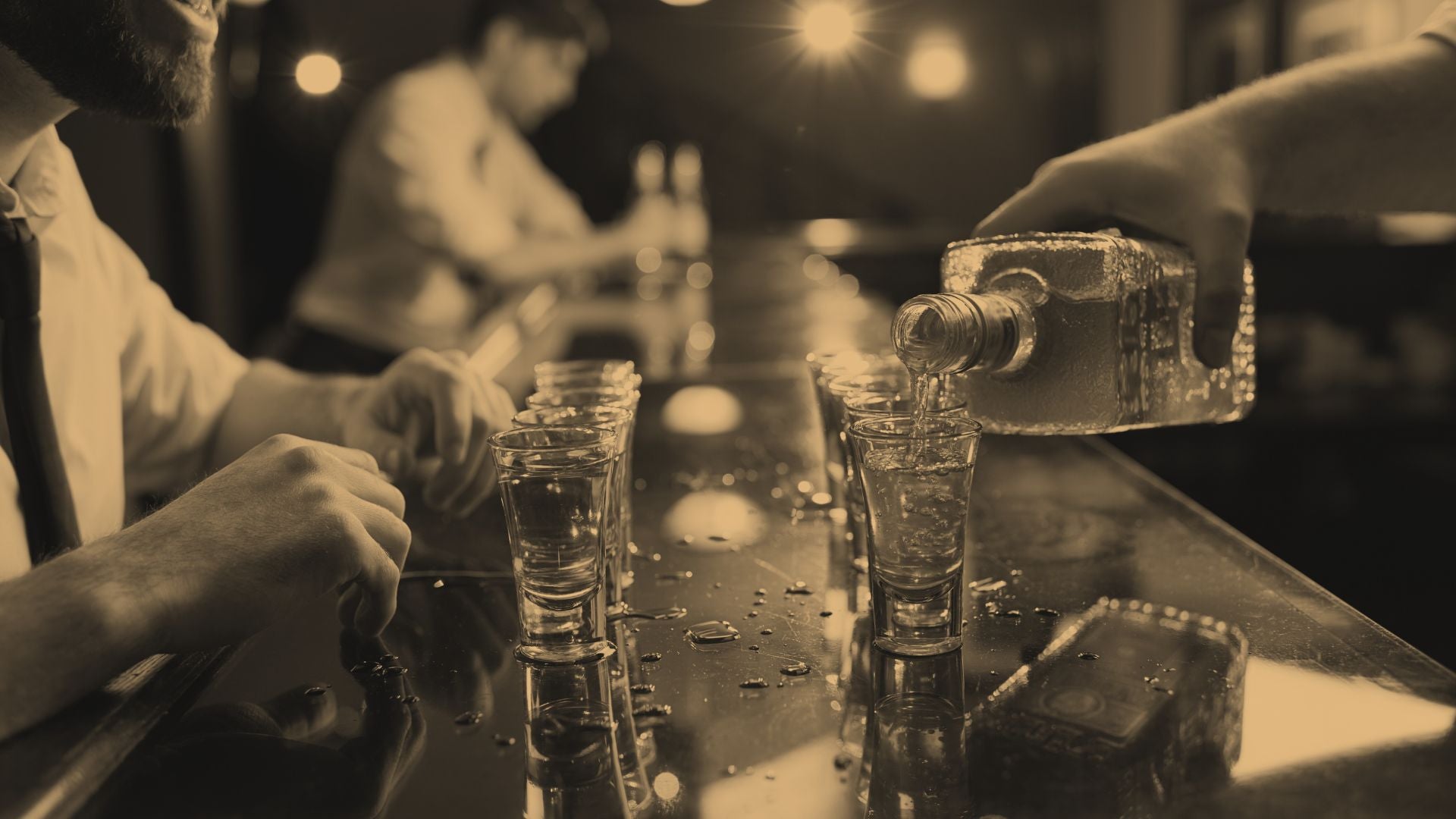
Why Does Drinking Alcohol Keep Me Awake at Night?
Because alcohol is technically considered a central nervous system depressant, which means it slows brain function, many people are surprised when they get home from a night of drinking and find themselves tossing and turning rather than passing out the moment their heads hit the pillow.
Or maybe you’re able to fall asleep, but you wake up after a few hours and can’t get back to sleep.
You may also sleep through the night, but wake up feeling less rested than normal, dragging through your day while pushing through exhaustion and fatigue.
When you consider that many people drink a nightcap before bed to help them sleep, the fact that drinking makes us sleep worse seems especially counterintuitive. So why might this be the case?
Read on and we’ll explain what it is about alcohol that could be causing you to have trouble sleeping after you drink. We’ll also recommend ways to mitigate this unpleasant side effect, even without completely abstaining from drinking alcohol.
How Does Alcohol Impact Our Sleep?
Despite its tendency to make many of us feel sleepier, there are several key ways that alcohol can be bad for our sleep: Causes Insomnia Drinking alcohol a lot can lead to insomnia, and the more severe your alcohol dependence, the more likely you are to develop insomnia. Up to three quarters of those with alcohol dependence have insomnia after drinking.
Some people with insomnia may also try to “self-medicate” by drinking alcohol to help themselves fall asleep. This is why those with insomnia are also at a higher risk of alcohol use disorder.
Disrupts Circadian Rhythm, Creating Altered Sleep Cycles
The connection between alcohol and insomnia is related to alcohol’s effects on our circadian rhythms, which are the pattern of physical, mental, and behavioral shifts that we experience during each roughly 24-hour period. They are most strongly impacted by the presence of light and darkness, but other factors (including not only alcohol consumption but also diet, social context, temperature, and more) can also affect our circadian rhythms.
Especially for those who are drinking heavily on a regular basis and experiencing alcohol dependency, alcohol is believed to make the body less sensitive to the cues (like light and darkness) that cause us to secrete melatonin—a crucial hormone for proper sleep—and experience the normal body temperature changes associated with falling asleep. Without these normal cycles, we can experience some of the most frustrating symptoms of insomnia, like feeling awake at night when you’d rather be sleeping, and feeling tired during the day when you need to be awake.
Worsens Snoring and Sleep Apnea
An estimated 30 million Americans have sleep apnea, with only about 20 percent (6 million people) actually diagnosed and thus able to be treated for this often debilitating sleep disorder. Sleep apnea causes sufferers to experience pauses in breathing during sleep, either when the brain stops sending signals to tell the body to breathe (central sleep apnea, or CSA) or the tissues of the nose/throat collapse and block the airway (obstructive sleep apnea, or OSA).
Unfortunately, alcohol can make sleep apnea worse, increasing both the likelihood and the length of pauses in breathing during sleep. Alcohol causes the muscles of the tongue and throat to relax more easily (worsening OSA) and can disrupt the brain’s ability to send chemical “messages” to the body regarding respiration (worsening CSA). In addition, when they do experience pauses in breathing, having alcohol in their bloodstream means they are more likely not to wake up during their breathing pauses and begin breathing again—in those with sleep apnea, these “arousals” disrupt sleep but prevent the more extended oxygen deprivation that can cause greater harm.
How to Sleep Better After Drinking Alcohol
You don’t have to stop drinking entirely to be able to get a good night’s sleep. Here are some tips for finding a healthier middle ground.
When to Stop Drinking Before Going to Sleep
According to University of Michigan behavioral sleep expert Dr. Deidre Conroy, most sleep researchers would recommend avoiding alcohol consumption for a minimum of three hours before you go to bed.
However, there are a number of factors that might mean you need to stop drinking more than three hours before falling asleep:
- Consuming numerous drinks in a relatively short period, as these will take longer to metabolize
- Drinking without food in your stomach
- Having above-average sensitivity to alcohol
- Processing alcohol more slowly than the average person Having had less sleep than normal in the last few days
- Taking any medications that can interact with alcohol and alter its effects
Supplements to Take Before and After Drinking
In addition to leaving at least a three-hour buffer period between drinking and going to sleep, you can support your body’s ability to process alcohol by taking some key supplements before and after drinking.
Before Drinking: Take Capsulyte’s PREGAME Supplement
PREGAME was created by Dr. Dan Nguyen, MD, MBA using a powerful combination of ingredients with scientific evidence backing their efficacy in supporting alcohol processing. These include NAC, which may make post-alcohol symptom less severe; DHM, which is an anti-inflammatory and antioxidant; Clovinol®, another anti-inflammatory and antioxidant that can minimize negative feelings after drinking by about 55 percent; and Siliphos®, a compound derived from real milk thistle that could have protective effects against alcoholic liver disease-related cirrhosis.

After Drinking: Rehydrate with HYDRATION
One of the most important ways to help your body normalize itself after a night of drinking? Ensuring you stay as hydrated as possible. This is because dehydration can make the negative effects that follow drinking significantly worse.
HYDRATION has been formulated to help the body bounce back from alcohol-related dehydration. It does so with a combination of sodium, potassium, magnesium, and calcium, blended in optimal ratios and known as Hydra 4G™.
In addition, HYDRATION also contains B vitamins (which may regulate neurological function, blood cell formation, and energy metabolism), Liposomal Pureway C™ (which may combat free radicals with its antioxidant properties while supporting the immune system), and zinc (an essential mineral that is needed for the immune system to function properly).

Visit the Capsulyte blog for many more informative posts describing the most effective, evidence-based methods for minimizing and bouncing back from post-drinking effects.


